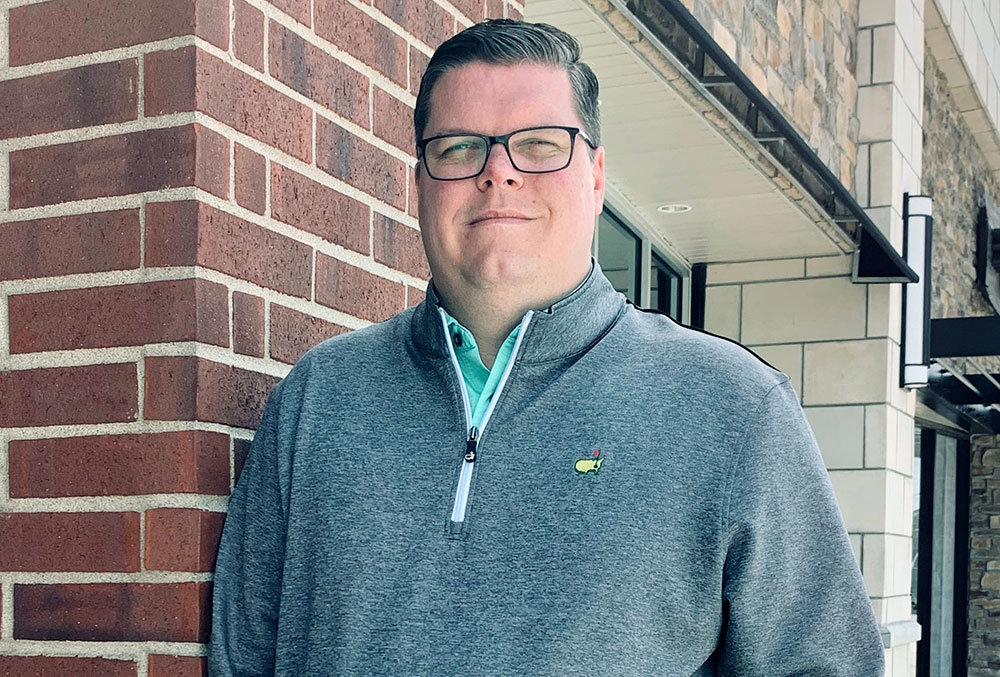YOUR BUSINESS AUTHORITY
Springfield, MO
YOUR BUSINESS AUTHORITY
Springfield, MO

Why did you, Curtis Jared and David Havens start Alliance Capital Investors?
Jared Enterprises is a third-generation, family-owned real estate holding company. One of the goals of starting this new venture was to gradually transition the Jared family real estate portfolio out of this family-owned business and to a company with a diverse ownership group. They own about 45% of ACI. It’s in the third generation, and this is just a long-term succession plan. The other goal was to really provide a real estate investment vehicle that we saw a big need for. The easiest way (to invest in commercial real estate) is to just call your broker, your financial adviser and say, “Hey, I want to put this money into like a publicly traded (real estate investment trust).” And that’s fine, but people don’t really feel connected to that. They don’t feel like they’re owning real estate because it’s some REIT that owns buildings or properties somewhere that they may not even know where they are. They can’t see, touch or feel them. The other way people would invest in commercial real estate is either by themselves or they get with a group of business partners. If you do that option, you own one building. They don’t really have diversification. We own multiple properties across multiple asset classes. With the Jared family’s portfolio, that’s kind of what the focus has been on what we’re buying, but we’re also buying things on the open market.
How many investors do you have and how much capital have you raised?
We spent pretty much all of 2018 building the structure of the company and putting together the first round of offering documents. What we’re essentially selling here is a security. We’re selling units into this partnership. We are registered with the [U.S.] Securities and Exchange Commission. Our first round of raising capital took place January 2019 through May 2019. We raised just under $3 million, and we bought our first set of properties in August 2019. We bought a retail center, an industrial warehouse and office building, and two ground leases. In December 2019, we purchased a vacant bank property on East Sunshine [Street] as a development project. Then we did our second round raising capital. That started in November 2019 and it closed at the end of January of this year. We raised right at $3 million again, and we used those funds to purchase one major retail center here in Springfield. We’re also in the process of doing a Starbucks build to suit, that’ll be in southwest Springfield and that’s scheduled to be completed this fall. We have a total of 44 investors and the real estate portfolio inside ACI is valued a little over $16.2 million.
Are you planning on opening investment rounds every six months?
The long-term goal of the company is to continue to do capital raises two to three times a year. Each time we go raise more money, we are going to buy more properties and create even more diversification. We’ll probably do the next raise before the end of this year.
Have investors already seen a return?
Absolutely. By structuring it this way, we’re able to get the banks with their history of knowing us and with the amount of equity we’re willing to put into (the properties), we’re getting nonrecourse debt on all of these to the owners. We started paying out distributions to investors as a return, however when COVID hit, just with the uncertainty that’s out there, we did suspend paying distributions in second quarter. Once things start settling down and our tenants get their feet back under them, then we’ll continue that again.
Is the plan to eventually phase out the Jared Enterprises name?
It’ll still be around for a while. They are still a huge part of this. It’s a transition from a 100% family-owned business over to a business with a diverse ownership group.
What’s the impact to commercial real estate by the COVID-19 pandemic and economic downturn?
Commercial real estate is slow and steady growth. I’m looking at a whole bunch of singles, maybe the occasional double, but we’re not swinging for home runs all day long. That’s not to say commercial real estate is immune to having a downturn. There will be vacancy, there will be (tenants) that go out of business because of COVID. The supply that hits the market is going to drive down rents in some areas. The idea we’ve really focused on is if you’re willing to work with your tenants, and the banks are willing to work with us, we can get through something like this. We honestly believe that when we come out of the other side of COVID, that ACI will be stronger than it was when it went in. These tenants were hit with something that they couldn’t have seen coming and they were forced to shut their doors. We got almost every single one of the banks we work with to give us three months’ interest only. And we’re passing that cash flow on to our tenants. We’ll be made whole later.
Tyler Creach can be reached at tcreach@jaredenterprises.com.
Utah-based gourmet cookie chain Crumbl Cookies opened its first Springfield shop; interior design business Branson Upstaging LLC relocated; and Lauren Ashley Dance Center LLC added a second location.
Updated: Systematic Savings Bank to be acquired in $14M deal
Warby Parker store planned in Springfield
Former CoxHealth colleagues starting communications firm
Former Wentzville superintendent to get $1M in contract buyout
STL construction firm buys KC company
NPR editor resigns after writing piece critical of organization
Survey finds increase in average salary Americans willing to take